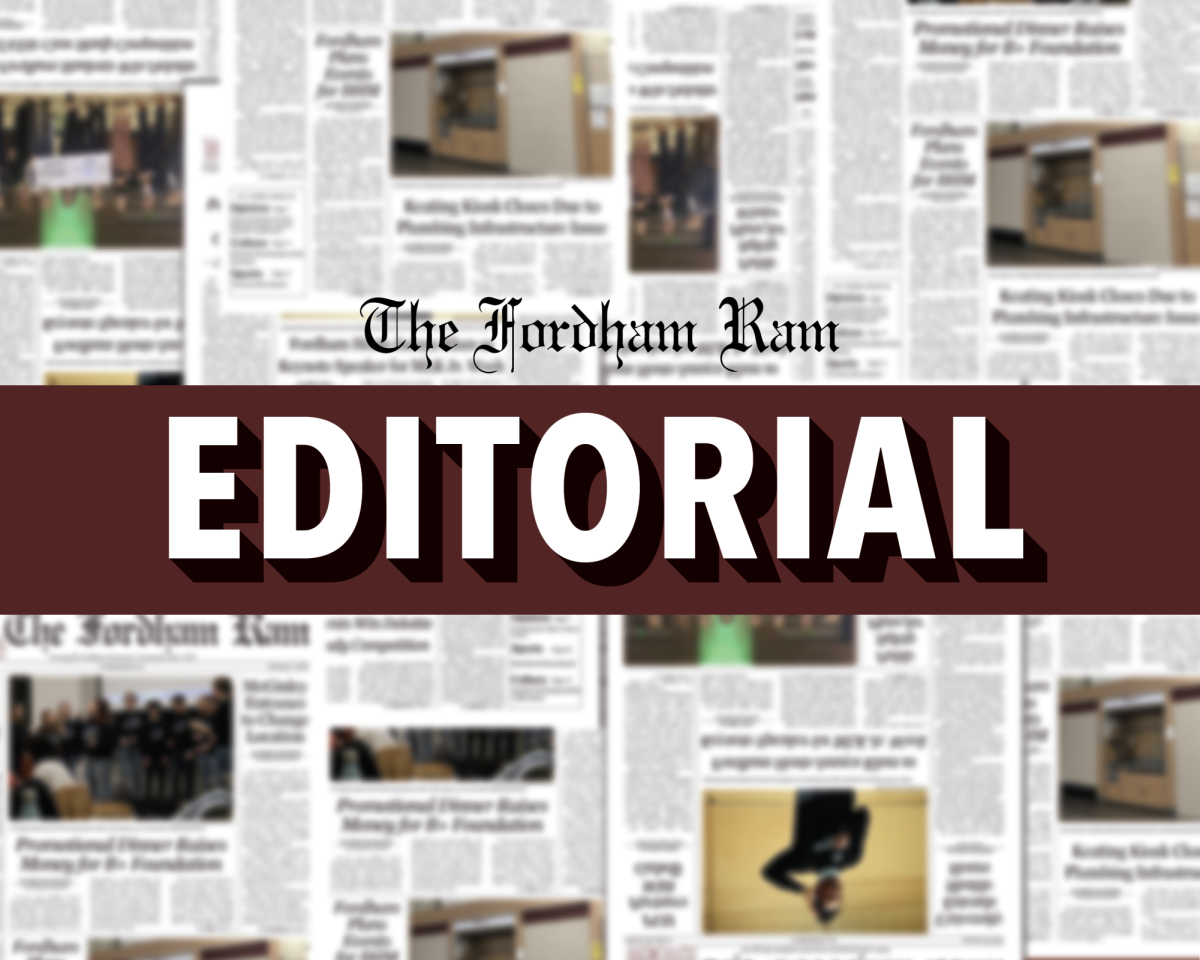The World Health Organization (WHO) declared an end to the COVID-19 international pandemic in May 2023; however, as we move into cold and flu season, it is unsurprising that COVID-19 case numbers are on the rise again. With the WHO’s announcement, Fordham released their updated policies related to vaccinations, testing and isolation. Fordham’s policies have significantly relaxed from the guidelines that students were in compliance with for the past few years which was a necessary step for the place we are in with the pandemic; however, with the rise in cases on campus, some flaws in these revised policies have been starkly highlighted.
Currently, the university doesn’t have a vaccination requirement in place and has not announced whether the upcoming booster, approved by the FDA on Sept. 11, will be required for community members. As Fordham no longer requires the vaccine for anyone coming on to campus, the University Health Center no longer even stocks vials of the vaccine that they “strongly encourage.” A number of other policies are simply encouraged now instead of being required. Masking is suggested when feeling sick, in a large crowd or if case numbers start to rise. Close contact notification is at the student’s discretion. Testing is still offered through the health center and while it is not required if feeling symptomatic, it is recommended. However, as with every measure listed above, this is at the student’s discretion if they would like to get tested.
All of these changes are understandable as the pandemic shifts from being a life-threatening situation to being something akin to the cold or flu — except for those with a condition that would make COVID-19 more dangerous. The one change that proves to be problematic is the isolation policy. Fordham no longer offers isolation rooms for anyone who tests positive for COVID-19.
The university recommends going home to isolate in place of offering on-campus isolation rooms. This is a fine idea for anyone living within driving distance of the university. However, for those living on the other side of the country or for international students, this is simply not feasible. The solution to this problem that Fordham has offered is isolating in your dorm room. This is inherently contradictory to isolating as it directly exposes another person to the virus except for the rare student with a single room. Furthermore, Fordham does not even require isolating after testing positive — the language the health center uses is “should” isolate.
Fordham does not offer the student body a reason as to why it has done away with isolation housing. Guesses can be speculated with increasing class sizes and the same number of rooms available for more students, but Fordham has not explicitly said why they have done away with isolation rooms.
Looking outside of Fordham to the greater New York City area, there have been changes to the recommendations coming from NYC Health as well. They recommend having at least one booster dose, testing when symptomatic and wearing a mask in crowded areas or if numbers rise. New York’s policies reflect the same shoulds and recommendations that can be found in Fordham’s language as well.
The difference between Fordham’s policy and New York’s is related to isolation. While New York’s hotel isolation program has been suspended since March 2022, New York residents are still told to isolate themselves away from others, not encouraged to continue living in a communal setting.
While Fordham seems to be following a majority of the same guidelines that New York has outlined, there are a few key differences in why Fordham’s recommendations pose a problem over New York’s. First, Fordham is not catering to only local residents who can isolate themselves from communal living conditions. They are catering to students from all over the world and offering the only true isolation option as returning to a permanent residence creates an inequity to international and long distance students. This also is unfair to roommates of these students as these isolation policies completely disregard their health. Furthermore, it indicates a disregard for anyone who has a condition that makes contracting COVID-19 severe.
The argument being made is not to bring back restrictive policies. It is important that the policies evolve as the pandemic evolves. However, the current isolation policy leaves the community vulnerable to a massive uptick in cases which threatens a return of restricted living that was commonplace the last time cases swelled. Fordham needs to take improved isolation action before our cases get out of control and require a vast shift in guidelines. The last thing anyone wants is a return to past restrictions.







































































































































































































